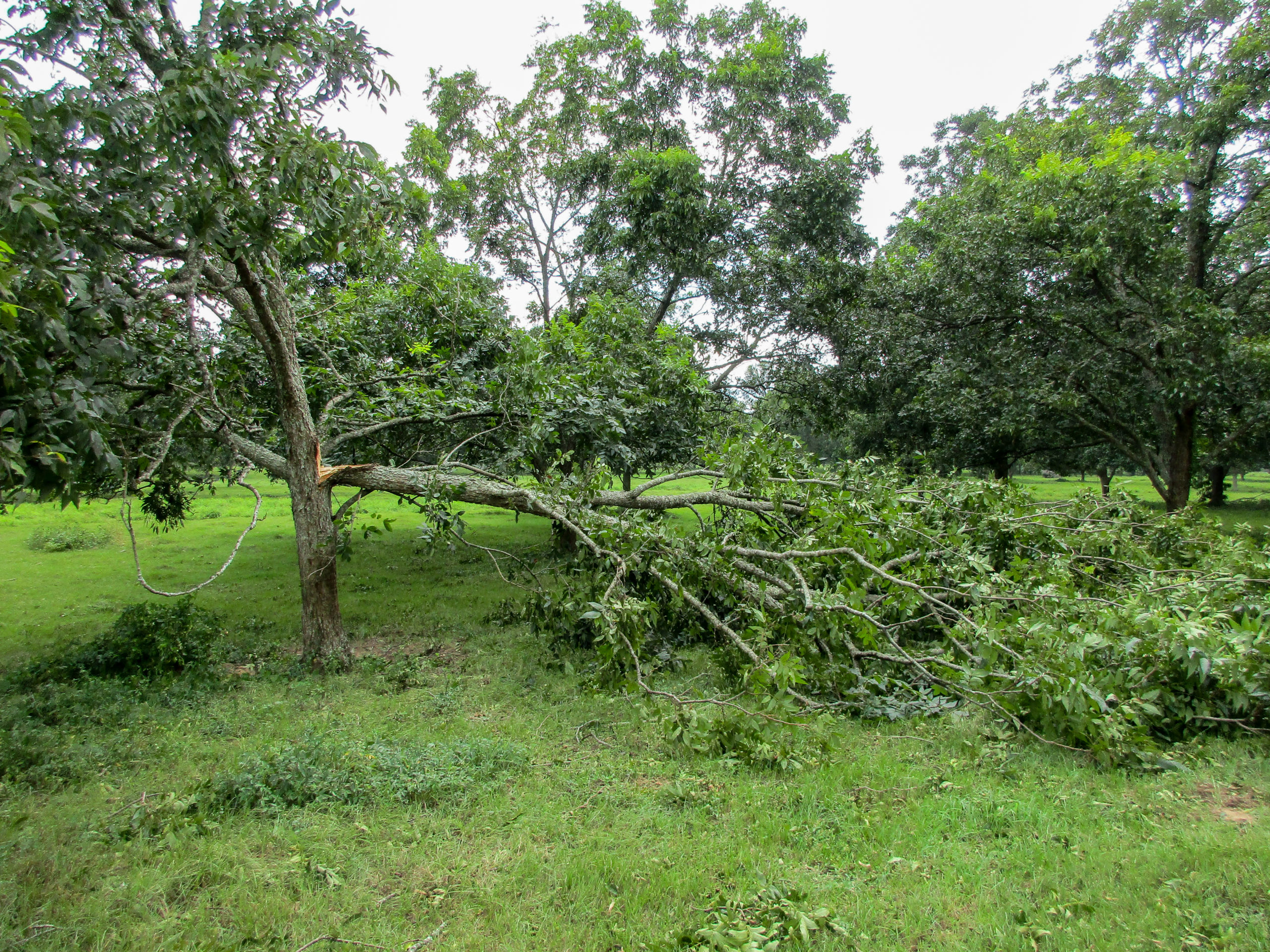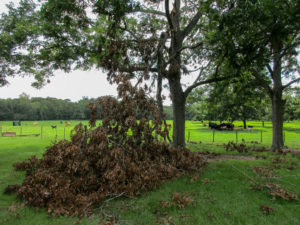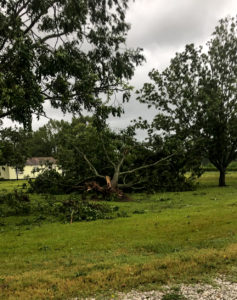Two States, Two Storms, Devastation Abounds

Hurricane Laura tore big limbs down from mature trees and downed several others at Barry Lee's orchard in Rapides Parish, Louisiana. (Photo by Barry Lee)
Growers in Louisiana endured Hurricane Laura at the end of August. Making landfall as a Category 4, Hurricane Laura is recorded as the strongest storm to hit Louisiana in 160 years. Yes, outpacing Hurricane Katrina and earning itself the infamous distinction of being one of the most powerful storms in U.S. history. With 150-mile-per-hour winds, this storm lit a massive chemical fire, killed six, knocked out running water, and flattened buildings along the coast.
Hurricane Laura wrecked the 2020 crop, fell trees, and caused damage across the state. Those farmers in Grant and Rapides Parishes report hundreds of downed trees, major limb breakage and injury, and significant crop loss. From 20- to 200-year-old pecan trees, Laura did not discriminate.
Sherman Richardson, a grower in Colfax, said their orchard was hit with about 85-mile-per-hour winds and estimates that the storm knocked 60 percent of their nuts to the ground. “We had hurricane-force winds up here halfway into Louisiana that has never happened,” he added. “This is a major event.”

Barry Lee’s orchard in Rapides Parish, Louisiana, lost an estimated 50 percent of his 2020 crop. Lee said major limb breakage like this is common throughout his property. (Photo by Barry Lee)
Growers closer to Alexandria also endured damage. Barry Lee, a producer in Rapides Parish, said that Laura tore big limbs down from mature trees and downed several others. He also estimated that he lost at least 50 percent of this crop.
“Our pecans were looking good. We were hopeful for a neat little crop. But now I don’t know if we’ll harvest,” Lee said.

At his orchard near Alexandria, Clay Robertson said his trees took a beating and his short crop litters the orchard floor. Several of his trees were blown over like this one. (Photos by Clay Robertson)
Although pecan orchards in Central Louisiana took the most damage, those located further north in the state, near Shreveport, also reported some downed trees and crop loss due to strong and consistent winds.
For now, growers continue to work toward getting back to normal. “We got hit pretty bad. It’s going to be a while just cleaning up,” Richardson said.
A few weeks after Hurricane Laura, Alabama pecan growers faced a storm of their own. Quickly changing course, Hurricane Sally made landfall as a Category 2 at Gulf Shores, Alabama, on Sept. 16. Gulf Shores is only a few miles from Alabama’s largest production area and Pecan Research Station.
With 105-mile-per-hour sustained winds and 25 inches of rain, Sally battered the Alabama coast and brought historic flooding and rainfall. Sally also left hundreds of thousands of people without power for days.
At the time that this edition of Pecan South went to print, Alabama growers were just getting a handle on the damage Sally caused. Early estimates put total crop loss for the state between 25 and 75 percent. Some growers lost 100 percent of their crop, and in Baldwin County, reports estimate 80 percent tree loss for the entire county.
While the storms each lasted a couple of days, the damage they brought will last for years. Producers focus on clearing out debris, sweeping up their ruined crop, and supporting trees that need years to recover. As other growers in the Pecan Belt and Mexico start harvest, these producers focus on cleaning up and starting over.
If a storm has impacted you, please contact Pecan South if you need guidance toward disaster relief programs.

